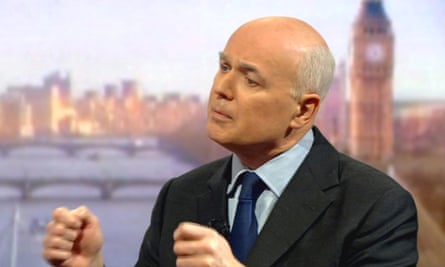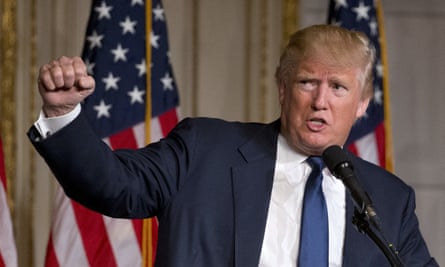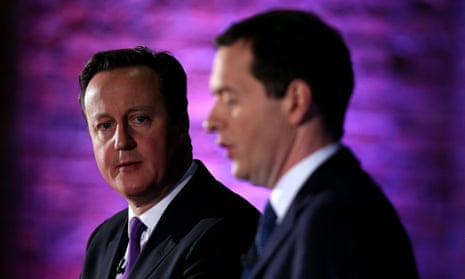Donald Trump is causing an implosion in the Republican party. Bernie Sanders is causing issues for the Democratic party establishment. Labour have been tearing strips off each other since Jeremy Corbyn became leader. And as of last weekend, the Conservatives seem to be heading for an all-out civil war.
It’s lucky these people aren’t in charge of anything important, or this would be a deeply worrying situation for nearly half a billion people.
It seems it’s the season for political parties to turn on themselves, resulting in attacks and accusations that would be considered excessive by the characters in Mean Girls.
What’s going on here? Why would professional politicians with long careers in a political establishment with long and proud history suddenly decide to engage in open verbal warfare against their supposed colleagues, especially with so much at stake? There are numerous factors which need to be considered, from an uncertain economy to an ever-changing electorate and media landscape. But, as ever, there are also many psychological factors to consider.
The group (or groups) we’re part of and identify with is a big part of how we define ourselves, even at a neurological level. As a result, most people in a group will prioritise unity of the group, and go to alarming lengths to maintain it. This applies to any group, it doesn’t have to be about anything objectively “important”, as anyone who’s upset any part of fandom will know. So given all this, and the fact that political parties definitely do have very important functions and responsibilities, it should be most unlikely that members of political parties end up at each other’s throats. And yet, clearly, it isn’t.

There are many factors that influence the psychological unity of a group. Group size is one. If you’ve a group of ten people, it’s much easier to all agree and achieve a sense of unity, and harder to get away with not contributing (known as social loafing). Similarity of group members also contributes, because people with similar experiences/backgrounds are, by and large, more likely to agree and empathise. How hard it is to join a group is also important: if you’ve gone through hell and back to be part of something, you’re obviously going to be enthusiastic about keeping supporting it and keeping it intact. The military know this, hence the notorious boot camp. It’s not just about improving fitness, but making sure those who get through it are fully committed to their role in the organisation. And let’s not get into fraternity hazing.
All of these factors influence how unified a political party is, some more than others, some negatively, some positively. On the positive side, political parties, at least at the very top, are generally (and depressingly) composed of very similar individuals. Claims of expanding diversity and representing communities are all well and good but when half of a country’s ruling body went to the same private school it’s hard to deny that they might have somewhat similar backgrounds and views. Also, given the amount of time, electoral success and progress it requires, it’s also generally very difficult to become a top politician (although not so difficult if you went to the right school, apparently).
On the other hand, top political parties are, almost by definition, very big organisations, with ample scope for differing views, policies, approaches, views etc. Still, this has been the case with most of them for many years. What’s different all of a sudden?
It could be the more “blatant” things that emphasise group unity, namely external competition and threats, and successes of the groups. See the Robber’s Cave Experiment for a stark demonstration of how potent these factors are.
You can see how any or all of these can have helped maintain unknowingly-fragile political unity for the past few years, and how that can quickly change and tear everything apart.
While the US Republicans have pretty much defined themselves via opposition to Barack Obama these past few years, once this prominent “external threat” is removed (via the inevitable end of his presidency) the underlying chaos of the organisation.

The UK Labour party has arguably had an even more confusing time of it. Already made up of disparate groups (trade unions, career politicians, neoliberals, right and centre and left-wing views etc.) and having suffered a severe election defeat (possibly as a result?), party unity was always going to be a big ask. The election of Jeremy Corbyn as leader seems to have served only to heighten this disharmony.
This seems to be the case for anything left-wing, given those with authoritarian views (i.e. people who defer to those in authority) typically tend to be right-wing, which may explain why so many left-wing groups seem to be most often engaged with attacking those with nominally similar ideologies: when nobody is effectively “in charge”, you’re bound to get more people arguing over how things should be done.
As for the Conservative party, there has been much talk of them making Britain a one-party state, and we may be seeing evidence of how bad an idea that is. You’d think with election victories leaving them “unencumbered” by the Liberal Democrats and a seemingly hopeless opposition, it would be plain sailing for the Tories. Clearly, that’s not the case. The presence of liberals at the top table would have provided a useful focus for the frustration of the more right-wing rebellious elements of the Conservatives, while an inferior but still-seemingly-competent Labour party would contribute to Conservatives uniting against them. Without either of these things, the differing views and beliefs of a very large political party suddenly become problems, problems that affect us all in some way in this context.
These are just the things that the psychology of groups suggest are influencing the current intra-party political animosity, so it’s not the whole story. The actions of individuals can also have substantial impact. Can a Republican party that has relied upon, even encouraged, prejudice and xenophobia for nearly a decade really act shocked when Donald Trump takes that ball and runs with it? Group polarisation accounts for much of this.
Similarly, are the current crop of politicians sufficiently capable “leaders”? A reliance on presentation and spin may mean they have an easier ride from most voters (for better or worse) but these qualities don’t automatically make you a strong leader. In times of uncertainty (which seems to be 24/7 at the moment) a strong leader is very important for group unity. But modern politics seems ill-equipped to allow such a thing. Allowing a free reign on voting for important issues like wars and referendums may be the most democratic thing to do, but it doesn’t demonstrate strong leadership, and allows dissenting views from other aspiring figures to gain prominence, which just makes the disharmony worse.
Not even a compliant media can be of use here; it’s hard to toe the party line when there are two lines. Or three. Or seven. And they’re constantly intersecting, crossing over, attacking each other or just going backwards.
All of this wouldn’t be a huge problem if the general electorate were consistent and clear in their intentions and desires. But they aren’t. So it is, that too much uncertainty at all levels means these issues aren’t going to go away any time soon. Strap in folks, we’re about to experience some turbulence.
Dean Burnett discusses group psychology in depth in his debut book The Idiot Brain which he keeps plugging here and on Twitter, @garwboy
The Idiot Brain by Dean Burnett (Guardian Faber, £12.99). To order a copy for £7.99, go to bookshop.theguardian.com or call 0330 333 6846. Free UK p&p over £10, online orders only. Phone orders min. p&p of £1.99.

Comments (…)
Sign in or create your Guardian account to join the discussion